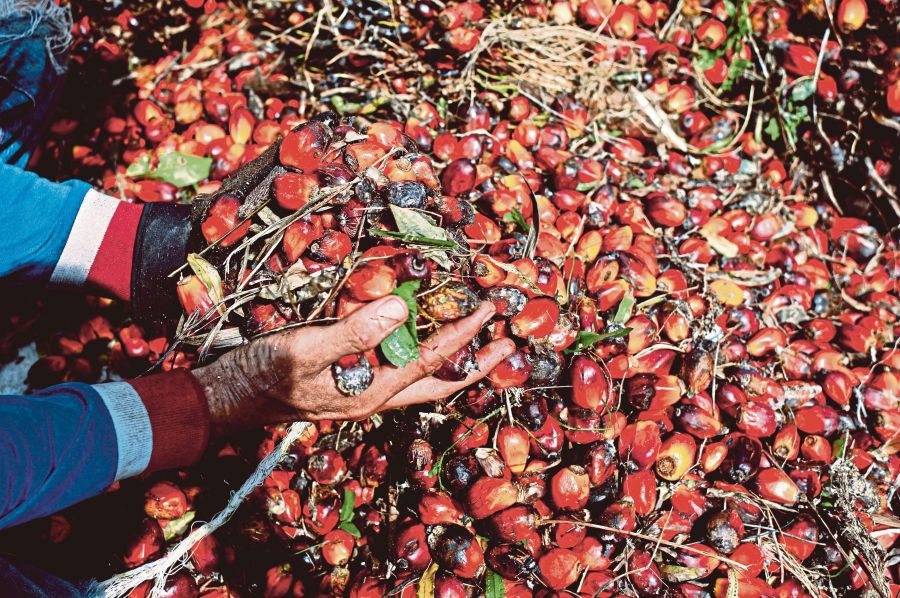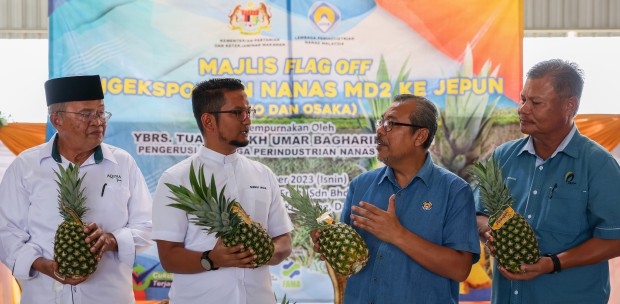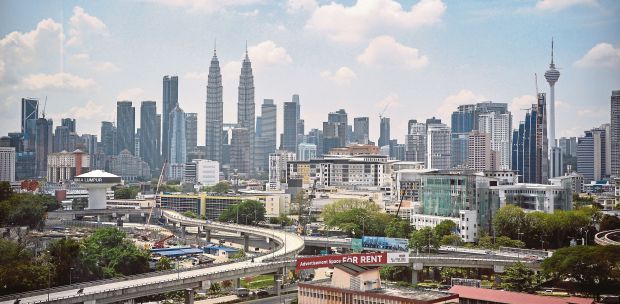THE price of crude palm oil (CPO), which has surpassed RM5,000 per tonne for the first time recently, has brought happiness to the industry players in the country.
Oil palm growers and fresh fruit bunches (FFB) producers may reap higher income as the price of CPO is expected to maintain its current bullishness amid tight edible oil supply and strong demand from consuming countries.
With better palm oil prices this year, the palm oil sector anticipates a contribution of about RM82 billion to the country's gross national income this year, a significant increase compared to that of the previous years.
Plantation is among the economic sectors that are highly dependent on labour to ensure the smoothness of its operation, particularly in harvesting the FFB.
Border closures due to the implementation of the Movement Control Order in March 2020 has prevented the recruitment of foreign workers which has caused acute labour shortage in the plantations.
Under the 12th Malaysia Plan, the government has laid down the country's development roadmap for the next five years, including reducing the employment of low-skilled foreign workers.
The government has outlined several measures to create more high-skilled job opportunities and these include encouraging industries to move towardsautomation and mechanisation.
The Ministry of Plantation Industries and Commodities (MPIC) through MPOB has initiated a training programme for youth on mechanisation to attract the local workforce to work in the plantations.
The adoption of mechanisation and automation as well as attractive working conditions in the plantations will improve theperception of the youth towards the (dangerous, dirty and demeaning) jobs in the plantation sector.
It is timely to invest in technology especially mechanisation and automation as alternatives to manual labours, particularly for harvesting. No doubt, mechanisation is imperative for the advancement of the country's oil palm industry.
MPOB has developed 47 types of machinery which can assist operations in the plantations. They include technologies for harvesting, collecting loose fruit and in-field transportation which improve worker productivity and plantation efficiency.
The government through MPOB has provided several incentives to encourage the adoption of mechanisationin the plantation sector including the People and Economic Strategic Empowerment Programme (Pemerkasa) and Oil Palm Industry Mechanisation Incentive Scheme (OPIMIS).
Under Pemerkasa, a matching grant of RM20 million is allocated to purchase machineries for Sustainable Oil Palm Growers Cooperatives (KPSM), established under the supervision of MPOB.
This will grant benefit to 65 cooperatives with a membership of 6,000 independent smallholders.
The OPIMIS which encourages the utilisation of mechanisation in the oil palm plantations received tremendous responses from oil palm growers and the budget for the scheme has been fully disbursed.
Testimonies from the industry players concurred that OPIMIS has benefitted them in purchasing Cantas.
The tool has increased labour productivity in harvesting oil palm fruits to five tonnes within four working hours compared to the conventional harvesting tools of only two tonnes for the same duration.
MPOB has also encouraged oil palm growers, particularly smallholders, to take up the Cantas Discount Scheme provided by the government to purchase the mechanical cutters for harvesting oil palm fruits.
The government has also approved a matching grant of RM30 million, which is channelled for the establishmentof the Mechanisation and Automation Research Consortium of Oil Palm (MARCOP).
The formation of MARCOP is aimed at improving the mechanisation and automation with focus on the latest technologies that embrace IR4.0.
The consortium is specifically tasked to develop viable technologies with focus areas on those that reduce labour dependent especially for harvesting and attract local talent into the plantation businesses.
Bringing back the foreign workers to Malaysia is a temporary measure to address the labour shortage issue in the plantation sector. However, the adoption of mechanisation and automation is seen to be the best long-term solution to the issues.
* The writer is the director-general of the Malaysian Palm Oil Board





